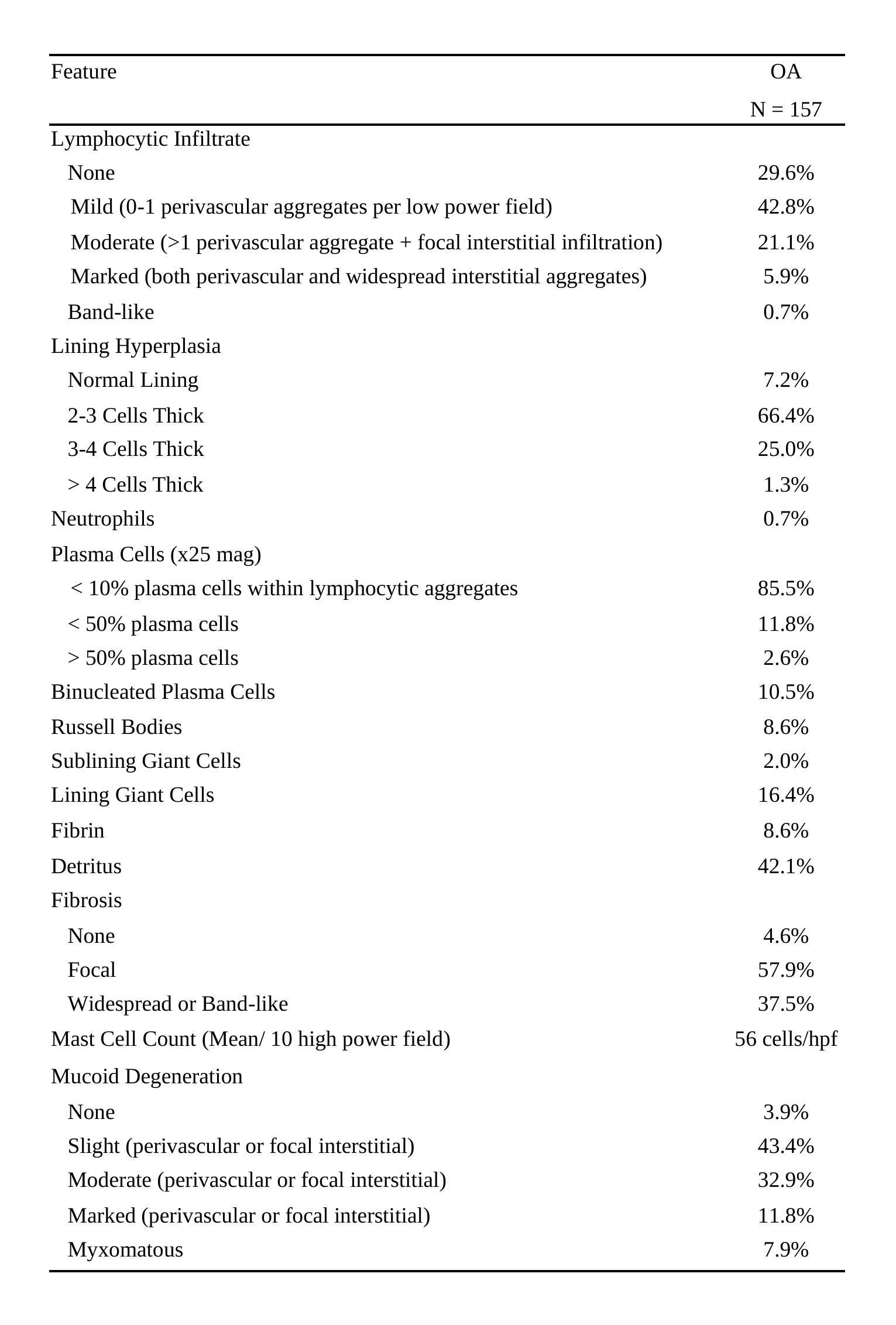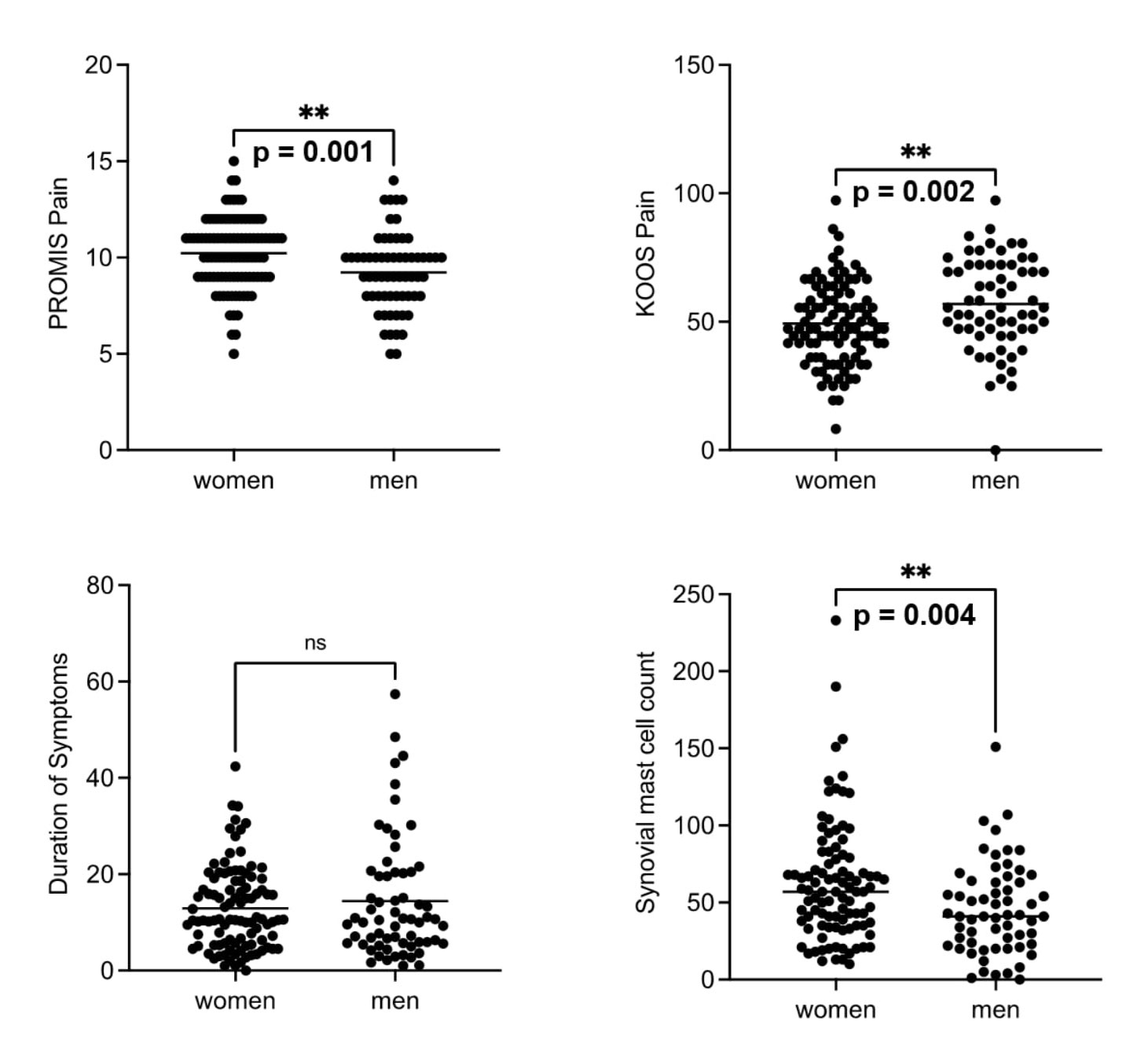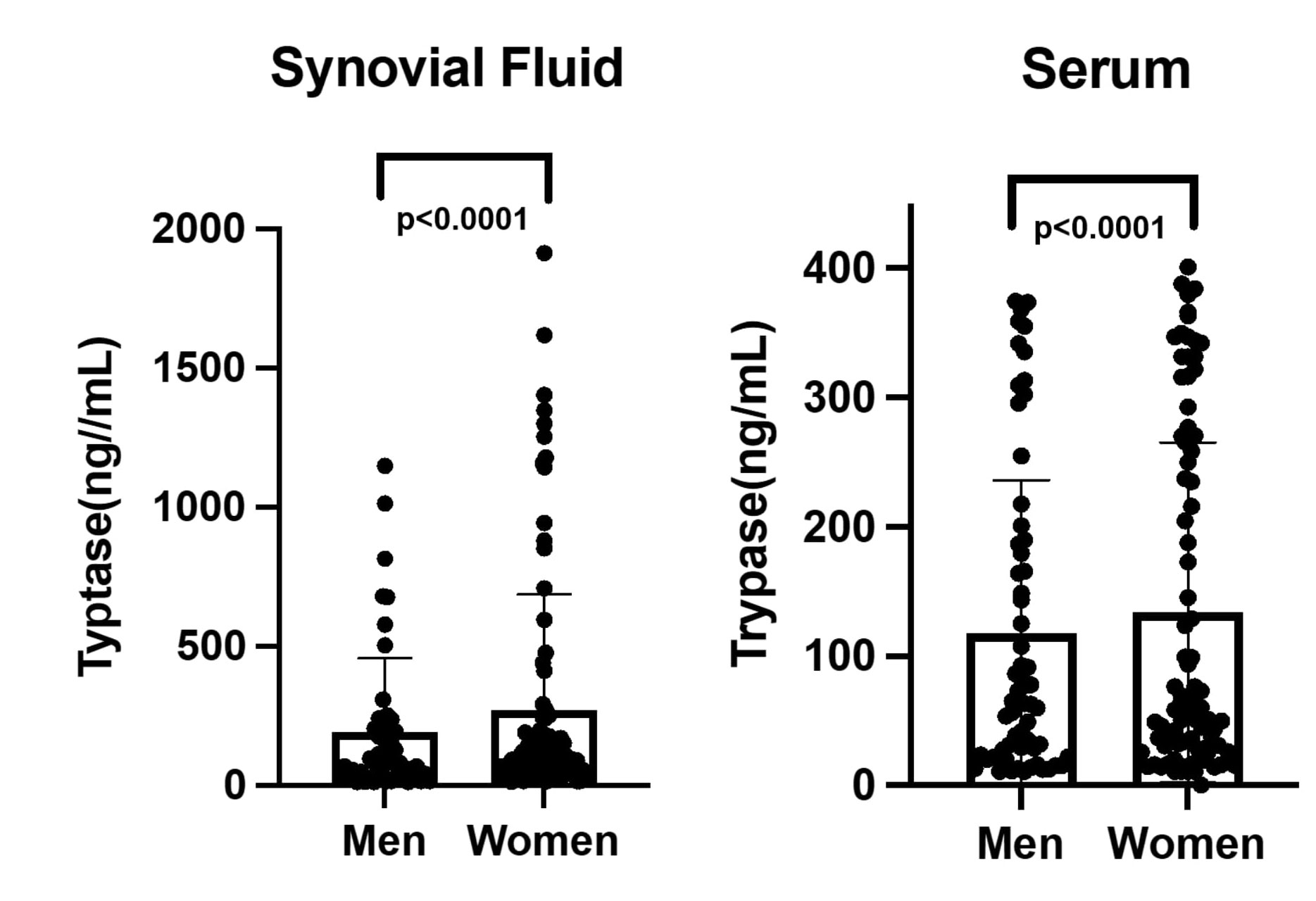Session Information
Session Type: Abstract Session
Session Time: 9:00AM-10:30AM
Background/Purpose: Women are at increased risk for knee osteoarthritis(OA) and report more severe pain than men at the time of total knee arthroplasty. It has been suggested that women are more likely to postpone surgery or suffer from central sensitization, but the precise mechanisms underlying sex differences in knee OA pain are poorly understood. We sought to examine if these sex differences are partly explained by synovial histology features in OA.
Methods: We compared sex differences in synovial histology features from tissues retrieved at the time of arthroplasty in a cohort of n=157 patients with end stage knee OA and patient reported outcomes of pain. Knee pain was measured using the PROMIS pain intensity score and the KOOS pain score. We also compared sex differences in tryptase levels in serum and synovial fluid obtained perioperatively. Standard of care synovial hematoxylin and eosin stained slides were graded by an expert pathologist for 13 features detailed in Table 1(lymphocytic infiltrates, lining hyperplasia, neutrophils, plasma cells, binucleate plasma cells, Russell bodies, sublining giant cells, lining giant cells, fibrin, detritus, fibrosis, mast cell count, and mucoid degeneration). Shapiro-Wilk test was used to assess the normality of the data. Unpaired t-test and Mann-Whitney test were used to compare normally and non-normally distributed data respectively.
Results: Compared to men(n=61), women(n=96) reported worse pain, as measured by the PROMIS pain intensity score(mean 7.2 vs 6.2, p=0.001) and the KOOS pain score(mean 57 vs 49,p=0.002). These differences were not explained by increased time from symptom onset to surgery, which was not different in women compared to men in this cohort(Figure 1). Synovial mast cell count was significantly higher in women compared to men(mean 63 vs 46/10hpf,p=0.004), and this remained significant after Bonferroni correction for multiple comparisons. No other synovial histology features were significantly different between men and women. In agreement with the increased synovial mast cell count, serum and synovial fluid tryptase levels were significantly increased in women compared to men(p< 0.0001)(Figure 2).
Conclusion: Compared to men, women with OA report increased pain at the time of knee arthroplasty, harbor increased synovial mast cell counts and have increased serum and synovial fluid tryptase levels. While there are multiple mice studies discussing the importance of mast cells in OA progression and pain, studies specifically evaluating the relative contribution of mast cells to sex-dependent differences in OA and pain are lacking, leaving a large knowledge gap in our understanding of sexual dimorphism in the biology of OA and pain related to it[1,2]. Our data suggests that mast cells may contribute to sex-differences in OA pain. Future studies and analyses on the effect of sex on mast cells and osteoarthritis pain might shed mechanistic and therapeutic insights into this poorly understood problem.
1) Sousa-Valente et al, Role of TrkA signalling and mast cells in the initiation of osteoarthritis pain in the monoiodoacetate model, OAC2018
2) Wang Q et al, IgE-mediated mast cell activation promotes inflammation and cartilage destruction in osteoarthritis, Elife2019
To cite this abstract in AMA style:
Mehta B, DiCarlo E, Wang F, Otero M, Song E, Sculco P, Figgie M, Goodman S, Robinson W, Orange D. Mast Cells May Explain Sex Differences in Osteoarthritis Pain [abstract]. Arthritis Rheumatol. 2022; 74 (suppl 9). https://acrabstracts.org/abstract/mast-cells-may-explain-sex-differences-in-osteoarthritis-pain/. Accessed .« Back to ACR Convergence 2022
ACR Meeting Abstracts - https://acrabstracts.org/abstract/mast-cells-may-explain-sex-differences-in-osteoarthritis-pain/



